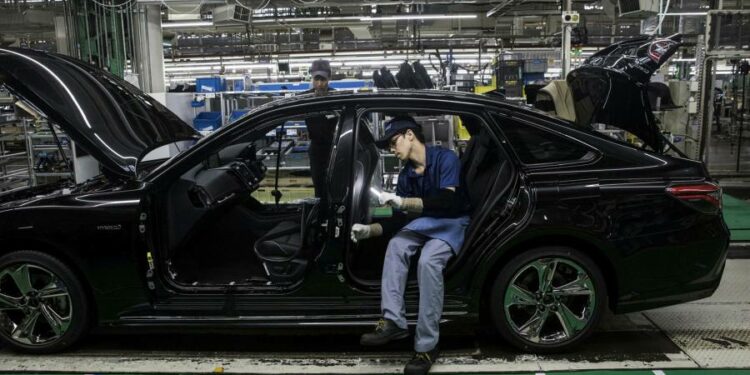A cyber attack on a supplier shut down operations at all Toyota’s plants in Japan on Tuesday. Senior officials fear the ransomware hack was a reprisal against Japan for imposing tough sanctions on Russia.
The stoppage will deepen doubts over the resilience of the Japanese automaker’s renowned just-in-time system at a time when cyber warfare is seen as a growing threat. Tech security experts have predicted widespread Russian hacking, though this has not materialised so far.
Toyota suspended production at all 14 plants in Japan, which account for about a third of its global production, along with operations at subsidiaries. Kojima Industries, a plastic parts supplier to Toyota, suffered a system failure that prevented it from shipping parts, accompanied by a demand for payment. A one-day suspension affects the production of roughly 13,000 cars.
The heavy impact from disruption at a lowly plastic component contractor shows how vulnerable Toyota’s lean manufacturing philosophy has made it. The business is tightly integrated with more than 400 suppliers, allowing it to run on as little inventory as possible
Wafer-thin inventories have already amplified supply-chain disruption. The company cut global output forecasts three times last year. Shares are down 12 per cent from a January high.
Japanese business is lagging global peers in cyber security. System failures at Mizuho Bank earlier this month disrupted ATMs. It was the bank’s 11th such incident since last year, despite a $3.6bn systems overhaul. Government agencies and game companies have also suffered high-profile attacks.
An analysis commissioned by Mizuho blamed a corporate culture where employees were reluctant to voice criticisms and struggled to respond to crises. Almost two-thirds of local financial groups claimed a lack of sufficient cyber defence personnel, according to a previous survey by the Bank of Japan.
The volume of cyber attacks globally more than doubled last year. Cyber crime is estimated to cost the world $6tn a year. The war in Ukraine is increasing the threat. Unfortunately, the consensual culture that made businesses such as Toyota a success may also make them particularly vulnerable.











